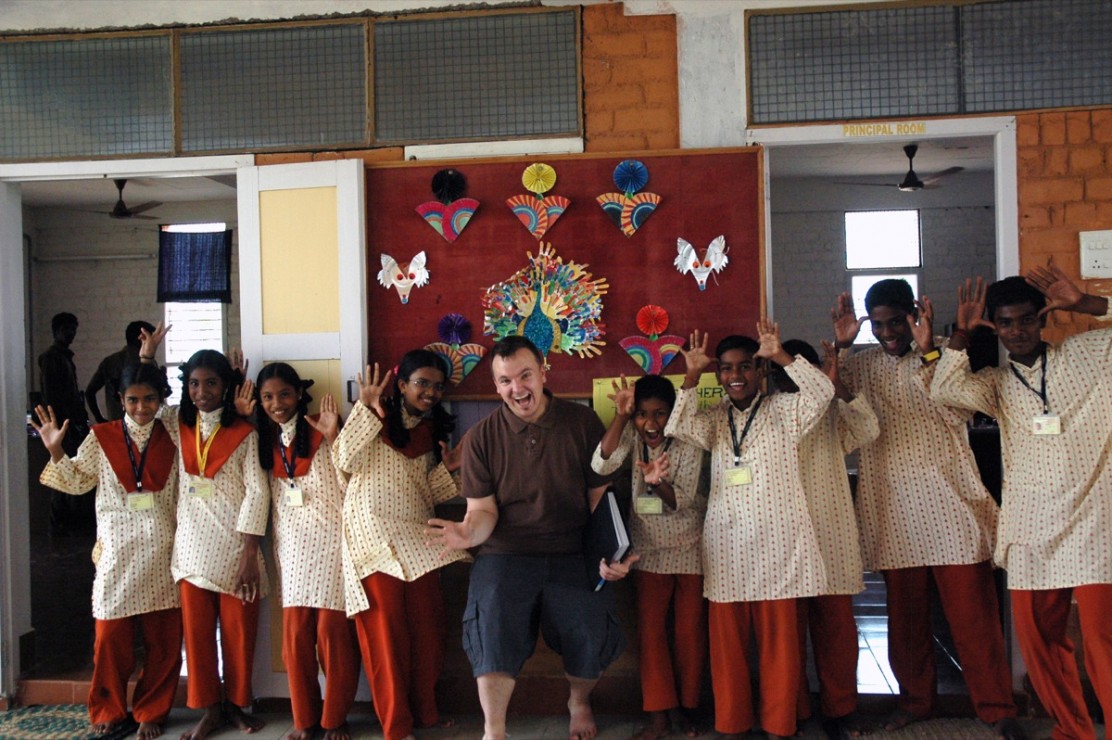On Sept. 29, 13 UVic theatre students departed for India to embark on the department’s first field school. The students—including Matthew Gusul, the PhD candidate organizing the trip, one masters student, and 11 undergrads—will stay in the elder village of Tamaraikulam until Dec. 5, organizing a self-sustaining intergenerational theatre company, meant to create social change by bringing members of two demographics together, celebrating the stories they have to share.
Warwick Dobson, University Scholar in Applied Theatre and the supervisor for Gusul’s project, says, “The idea is to get people to share, not the horrors of what happened, not the trauma of displacement, but the kind of successes that they’ve had since.”
The southern coast of India has experienced an extremely trying time since the 2004 tsunami. Younger citizens could relocate, but the elderly and the orphaned were incapable of evacuating the endangered coast due to physical limitations. With the aid of HelpAge India, the elderly were airlifted out of the affected zones and into a designated safe space, which became the elder village of Tamaraikulam.
In the past, there were few programs in India for senior care, but Tamaraikulam has become a model. The village is self-sustaining and is run by the elders who live there.
While conducting his thesis on intergenerational developmental theatre, Gusul learned about the newly incorporated village; in January of 2011, he made his first trip there to meet the elders and propose the idea. On Gusul proposing the idea to the elders, Dobson says, “It was presumptuous of us to go there and say, ‘This is how you do it.’ They have their own theatre traditions.” To avoid this cultural conflict, Gusul hired two Indian directors to work alongside the company, directors who will continue to work with them after the UVic contingent leaves.
The goal of an intergenerational theatre company, as Dobson explains it, is the same with most theatre: to bring people together. In a unique township with opposing demographics—elders and youth—the idea is to celebrate the lives and the triumphs of the community.
The company hopes to take the shows on tour and visit at least a few Canadian cities. This depends on both the success of the show, set to start at the end of November, and the amount of funding available.
After sending off their first field school, the theatre department hopes it will happen again. “It would be a shame not to build on what we’re doing with this trip,” says Dobson. Similarly, Allana Lindgren, the chair of the theatre department, says, “We’re really proud of them as they move forward. We’d like to see this as the foundation for future projects.”
“Theatre brings people together all the time,” says Lindgren. “In our department, when we put on our main-stage production, it’s largely the whole department working towards an end goal, and this is comparable to that.”








